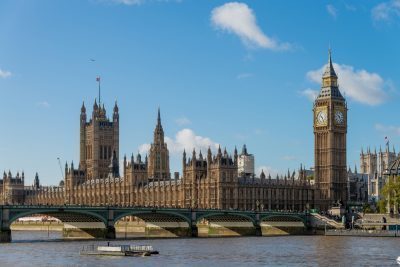
Existing evictions allowed if tenant is more than nine months behind in rent
The government has finally laid its updated lockdown regulations in front of parliament to clarify when landlords with existing possession orders can move to evict, revealing that one of the exemptions will be ‘substantial’ rent arrears, now to be classed as those over nine months.
As expected these regulations, which will come into force today and only relate to England, enable bailiffs to attend properties to execute a warrant of possession if it concerns trespassers, the death of a tenant, an unoccupied property and tenants involved in anti-social behaviour or, crucially, those who have built up substantial rent arrears.
It is this last point that many landlords and solicitors have been waiting for clarification on; how long can a tenant have not paid their rent before an existing possession order can proceed during the lockdown.
18 months’ wait
This may seem trivial when the lockdown is only a month long, but the way the law has been framed, landlords given the go-ahead to evict will now have been waiting at least 17/18 months before being able to deal with a tenant with substantial rent arrears.
This is because the eviction ban exemption only kicks in after nine or more months of unpaid rent, but any arrears accrued after March 23th are ignored – so another eight months on top of non-payment before an existing possession order can then proceed.
Today’s new regulations follow a sustained campaign by the industry to seek clarification, as well as efforts by leading PRS lawyer David Smith (pictured) who says his effort to point out that the the government ‘requesting’ bailiffs do not enforce legal evictions was in itself likely to be unlawful.
“This is a matter for Parliament and who gets evicted should not be at the whim of the Lord Chancellor,” he says.
Unfair
Ben Beadle, Chief Executive of the National Residential Landlords Association, says: “In trying to arrive at a compromise the Government has failed to help those in genuine need whilst rewarding those whose arrears have nothing to do with the pandemic, and in some cases are wilfully not paying their rent.
“This is doing nothing to help those tenants who are trying to do the right thing and seeking to pay off their debts.
“Instead of prolonging the problem with short-term fixes, the Government needs to urgently bring in a financial package to enable tenants to pay off rent arrears.”
Paul Shamplina of Landlord Action says: “Put simply, landlords are not banks or the welfare state. In fact, banks get their money back, but landlords are expected to swallow these losses.
“How is it fair that a landlord should be covering the rent for someone who was already failing to pay rent long before the pandemic started? What’s more, the likelihood of landlords in a similar situation to her, being able to collect monies owed is very slim.
“Whilst this is a positive step forward, there is a long way to go in clearing the backlog of cases and my concern now is for those landlords who have cases with, for example, seven months of rent arrears prior to March.
With the current lockdown and then the Christmas amnesty, evictions will not be enforced by bailiffs until 11 January 2021 at the very earliest, so even in the best case scenario, those landlords will be facing more than 17 months without rent.”


If you have any comments, please email the author of this article and click on the link above